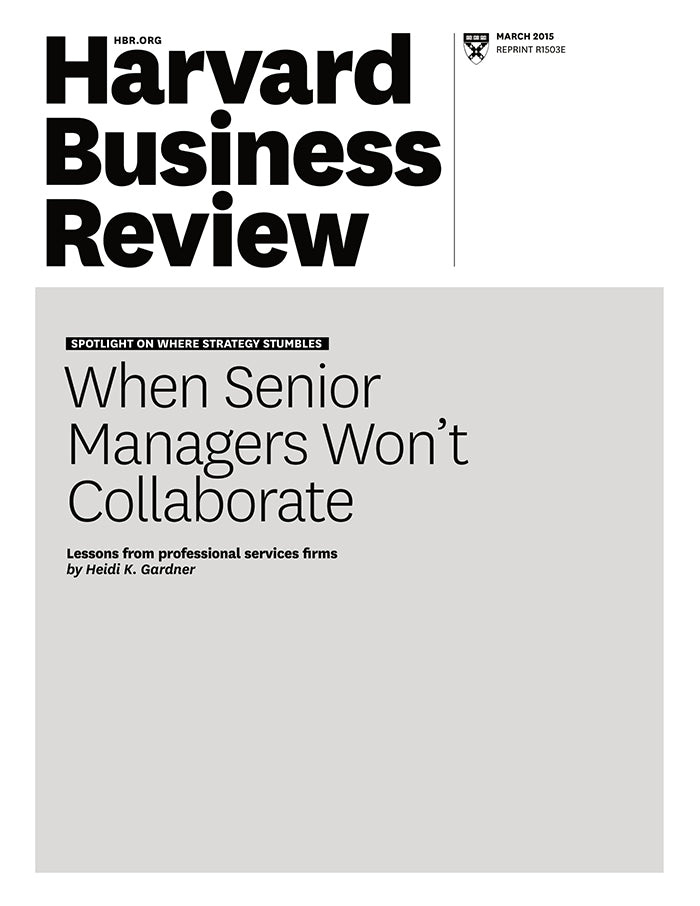When Senior Managers Won't Collaborate
受取状況を読み込めませんでした
For professional services firms, the only way to address clients' most complex issues is for specialists to work together across the boundaries of their expertise. When they do, their firms earn higher margins, inspire greater client loyalty, and gain a competitive edge. The author's research shows that the more practice groups involved in a client engagement, the greater the average annual revenue the client generates. And the more cross-specialty work professionals engage in, the more work they will subsequently get and the more they'll be able to charge for it. But although the financial benefits to the firm of multidisciplinary collaboration are clear, the benefits to individuals accrue slowly--and the downsides are immediate. The organizational structure, compensation systems, and cultures in many firms favor "rock stars, not the whole band." Moreover, learning to collaborate effectively is difficult. Both individuals and firms can encourage the kind of collaboration that lands high-value client work. Professionals, for instance, can reap the benefits sooner by establishing themselves with an influential colleague who can help them build connections to specialists across the firm. And leaders can take steps to lower the cultural and structural barriers to cross-disciplinary work.
【書誌情報】
ページ数:10ページ
サイズ:A4
商品番号:HBSP-R1503E
発行日:2015/3/1
登録日:2015/3/27


